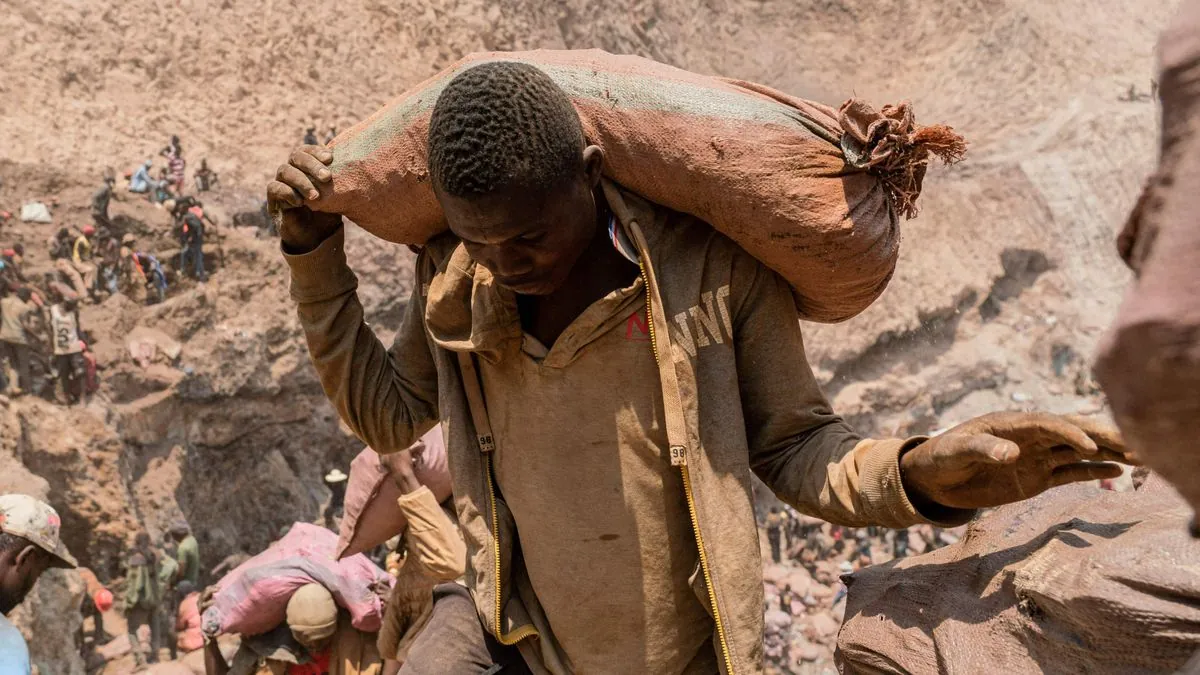A recent report by the U.S. Government Accountability Office (GAO) has revealed that the Securities and Exchange Commission's (SEC) 2012 conflict minerals disclosure rule has not effectively reduced violence in the Democratic Republic of Congo (DRC). The report, released on October 7, 2024, highlights the ongoing challenges in the region's mining sector.
The DRC, Africa's second-largest country, is renowned for its vast mineral wealth, including copper, cobalt, gold, diamonds, and coltan. However, the eastern part of the country has been plagued by conflict for decades, with the First and Second Congo Wars involving multiple African nations.
According to the GAO findings, armed groups continue to fight for control of gold mines in eastern DRC. The report suggests that the SEC rule, which requires certain companies to report on their use of tantalum, tin, tungsten, and gold, has likely had no impact on reducing violence in the region or neighboring countries.
The GAO report states:
"GAO found no empirical evidence that the rule has decreased the occurrence or level of violence in the eastern DRC, where many mines and armed groups are located."
Surprisingly, the report indicates that the rule may have been associated with a spread of violence, particularly around informal, small-scale gold mining sites. This is particularly concerning given that artisanal and small-scale mining is widespread in the DRC.
The DRC's position as the world's top producer of tantalum, a critical mineral for both the United States and the European Union, underscores the importance of addressing these issues. Tantalum is crucial for the production of capacitors used in electronic devices like smartphones and laptops.
The report also highlights the challenges in tracing and regulating the mineral supply chain, especially for gold, which is considered the most difficult to trace and easiest to smuggle among the four minerals covered by the rule.
It's worth noting that the SEC has expressed disagreement with some of the GAO's findings and raised concerns about its methodology and analyses. However, the GAO maintains that adjustments made did not materially affect its conclusions.
This report follows a previous GAO assessment in 2023, which found that some U.S. companies purchasing minerals from the DRC and neighboring countries were failing to meet disclosure requirements.
The ongoing conflict in the region continues to impact mineral extraction and trade. On September 30, 2024, Bintou Keita, head of the United Nations peacekeeping mission in DRC, reported to the UN Security Council that M23 rebels in the east are generating $300,000 per month from a coltan-mining region they seized earlier this year.
The M23 rebel group, formed in 2012, has been a significant factor in the ongoing instability in eastern DRC. The United Nations has maintained a peacekeeping mission in the country since 1999, highlighting the long-standing nature of the conflict.
As the international community grapples with these challenges, it's important to note that both the U.S. Dodd-Frank Act of 2010 and the European Union have implemented regulations aimed at addressing conflict minerals. However, traceability and due diligence remain key challenges in mineral supply chains.
The situation in the DRC is complex, with the country's vast natural resources, including the world's second-largest rainforest after the Amazon, contrasting sharply with its ongoing conflicts. As efforts continue to address these issues, the international community must remain vigilant in its pursuit of ethical and sustainable mineral sourcing practices.
